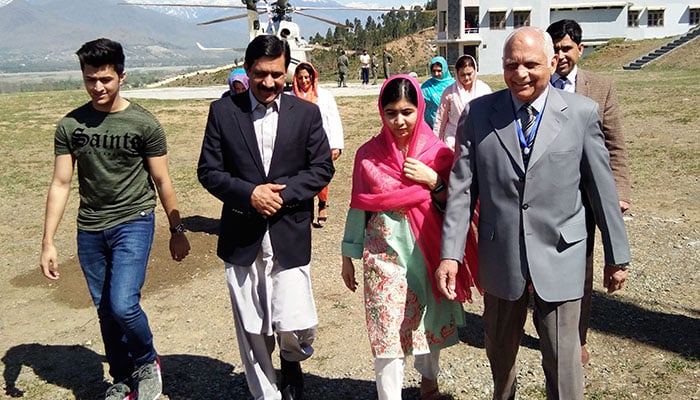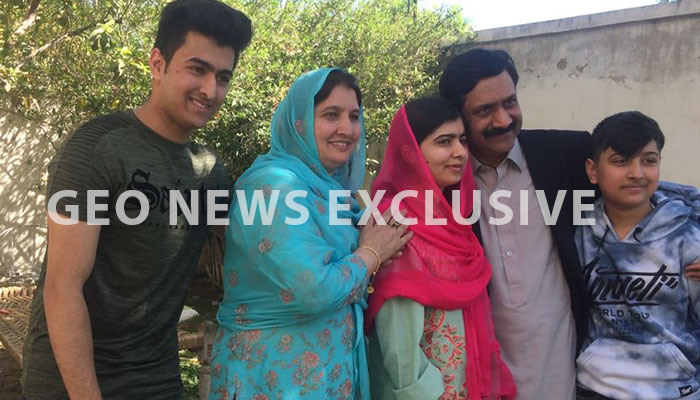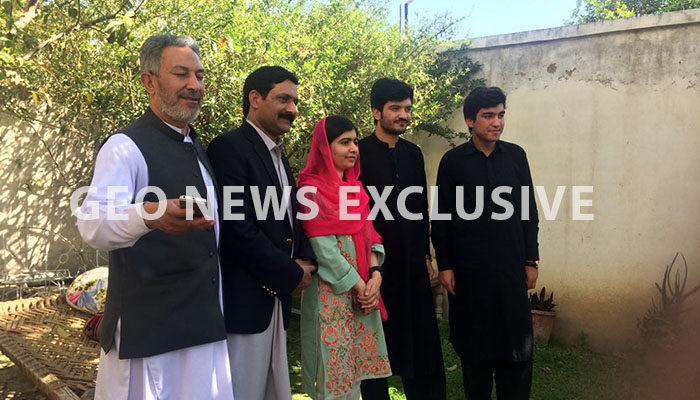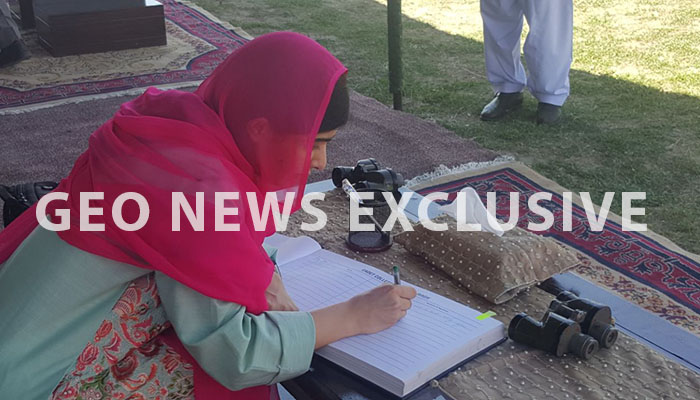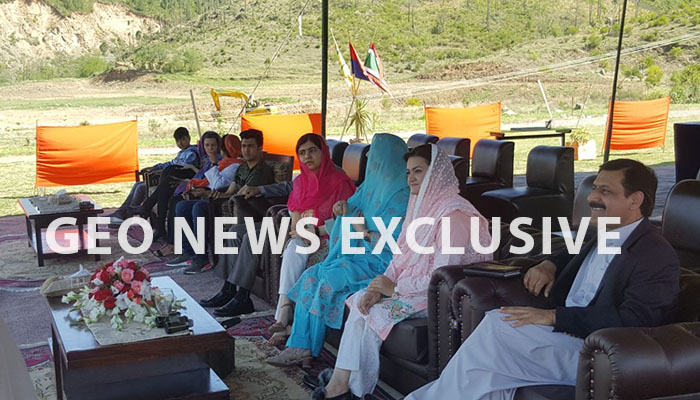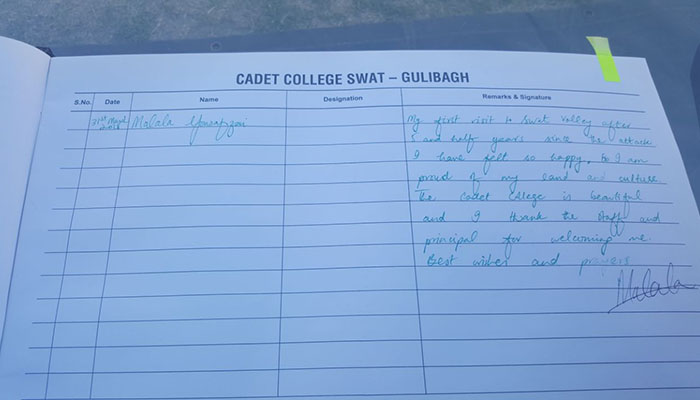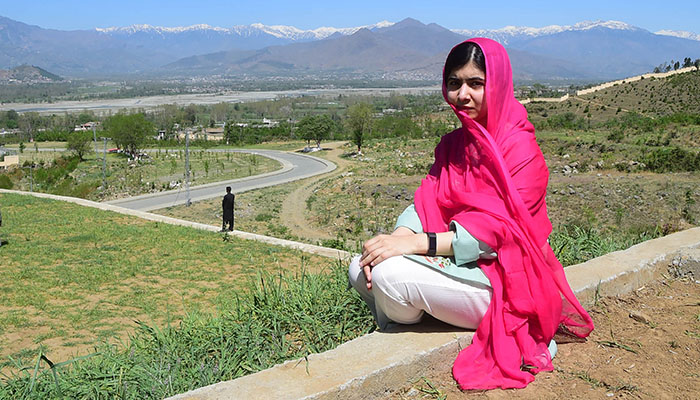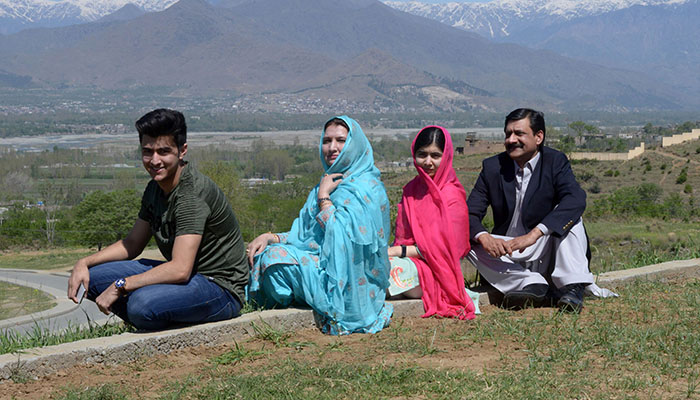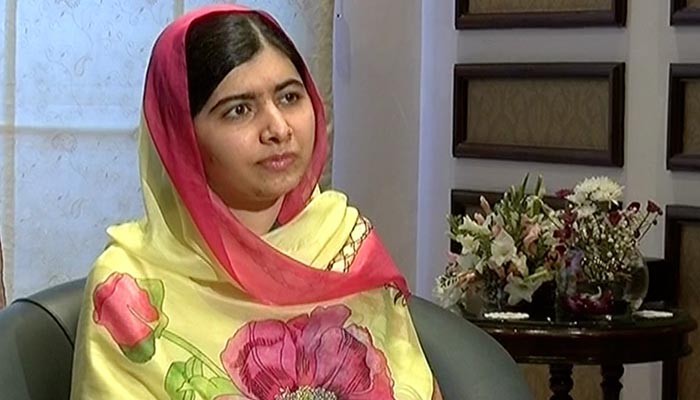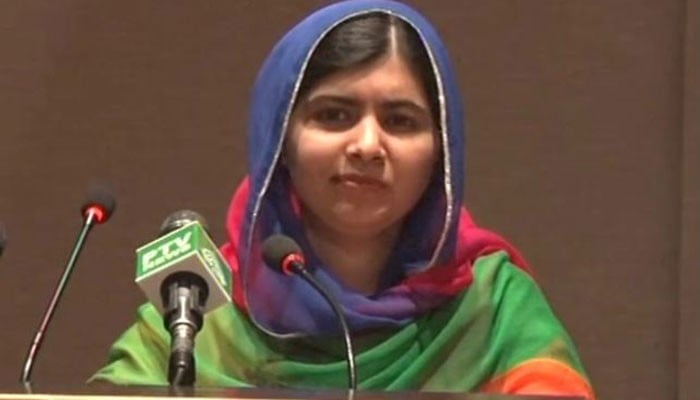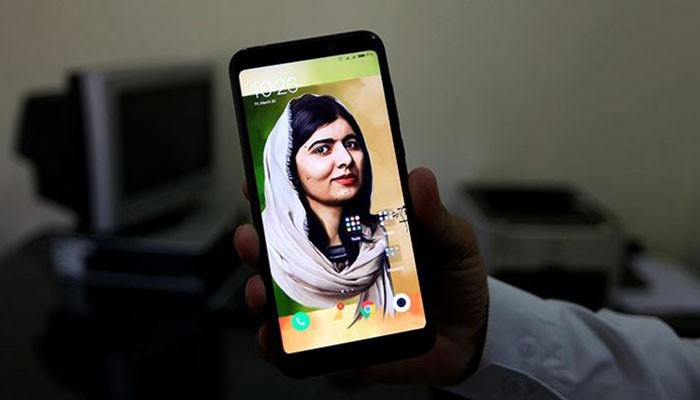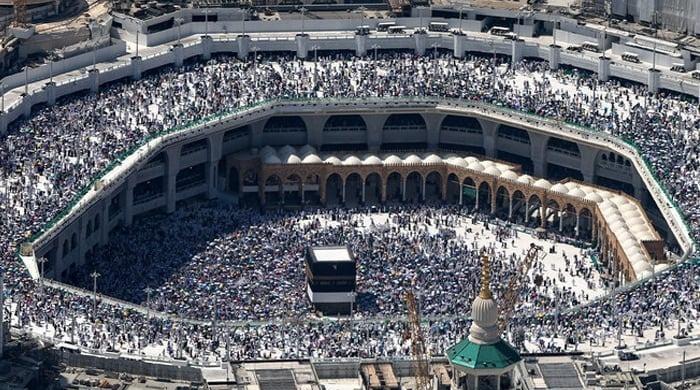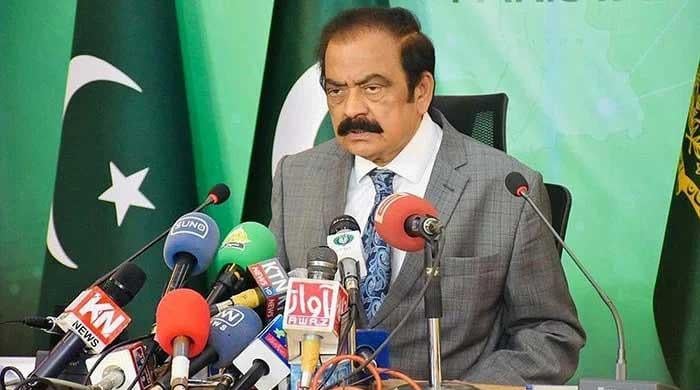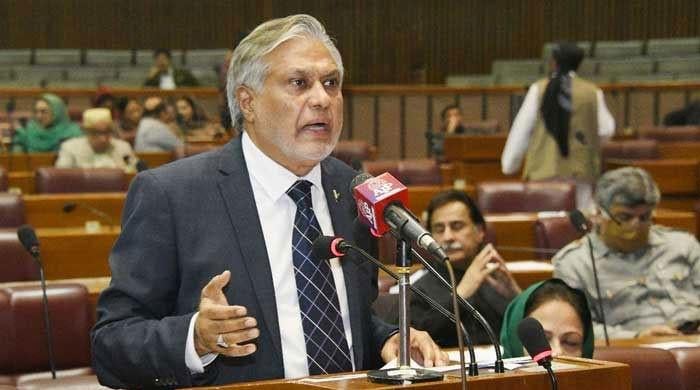Left Swat with my eyes closed, back with my eyes open: Malala
Malala met with friends and family before visiting the all-boys Swat Cadet College Guli Bagh during visit to hometown
March 31, 2018
Nobel Peace Prize winner Malala Yousafzai visited Mingora her hometown in Swat Valley on Saturday for the first time since she was shot by the Taliban as a teenager.
Mingora is where Malala’s family was living and where she was attending school on October 9, 2012, when a gunman boarded her school bus, asked "Who is Malala?", and shot her.
Malala was accompanied by State Information Minister Marriyum Aurangzeb, her family and others as she travelled by an army helicopter from Islamabad to Swat.
After arriving in Swat, Malala met with friends and family before visiting the all-boys Swat Cadet College Guli Bagh, some 15 kilometres (nine miles) outside of Mingora, the district’s main town.
“My first visit to Swat valley after 5 and a half years since the attack. I have never felt so happy. I am proud of my land and culture. The Cadet College is beautiful and I thank the staff and principal for welcoming me. Best wishes and prayers,” Malala wrote in the guest book of the college.
Speaking to the students of Cadet College, the 20-year-old said, "Peace has been restored in the country due to sacrifices of security forces."
Promising to return to Pakistan after completing her education, Malala said, "I am really happy to be in Swat. Swat is a piece of heaven."
"I left Swat with my eyes closed and now I am back with my eyes open," she told AFP, referring to how she was airlifted out in a coma after the attack in 2012.
"I am extremely delighted. My dream has come true. Peace has returned to Swat because of the invaluable sacrifices rendered by my brothers and sisters," she said outside the school.
She also visited Fizagat Recreation Park in her hometown.
The entire visit is believed to have lasted just over two hours.
Her family also told AFP of their joy in coming home. "I am unable to believe I am back in Swat and meeting my own people," her father Ziauddin Yousafzai said, in comments echoed by her mother Toor Pekai.
Malala returned back to Pakistan on Thursday, her first trip home since she was shot and airlifted abroad for treatment.
On Friday, speaking to Hamid Mir, anchor of Geo News programme Capital Talk, in her first interview to a news channel since returning to Pakistan, she said, “My plan is to return to Pakistan as this is my country.”
“I have the same right on the country as any another Pakistani,” Malala said during the interview.
Malala reiterated her joy of being in Pakistan and her mission of providing education to children. “We want to work for the education of children and make it possible that every girl in Pakistan receives a high-level education and she can fulfil her dreams and become a part of society.”
When asked if she saw a difference in the Pakistan of 2012 and 2018, Malala said: "Certainly there is a difference and things are improving. People in our country are uniting for a better Pakistan. People are active, which is a very good thing.”
Malala said she appreciated the role of the then Chief of Army Staff, General Ashfaq Parvez Kiyani in her treatment. “My treatment here [Pakistan] was by Army doctors and if they had not done my surgery in time I would not be here today.”
The 20-year-old also thanked the Army and government for the role they played in her return to the county, adding that without them this would not have been possible.
'Baseless propaganda and criticism'
In the interview, she expressed concern over 'baseless propaganda and criticism' on her especially by ‘well-educated’ people in Pakistan.
Malala said she wanted to know who was behind the malicious campaign against her, adding that she avoids watching news on television and going through negative comments on her social media posts in order to remain 'focused and positive.'
In the interview, Malala also mentioned her fellow students Shazia and Kainat — who were also injured when the Taliban attacked Malala in 2012. The two completed their tenth grade in Wales and now are pursuing higher education at Edinburgh University in Scotland, she said.
Role models
In response to a question about her role models, Malala said the nation had just lost one of the best role models, Asma Jahangir. “When you translate bravery into human body, you can call her Asma Jahangir.”
The 20-year-old expressed her faith in the Pakistani youth's ability and passion to bring a change.
"They are lucky to have many role models like you [Hamid Mir] to follow," she told the interviewer.
Malala's homecoming
Malala returned to Pakistan in a surprise visit in the early hours of Thursday. She met Prime Minister Shahid Khaqan Abbasi and addressed a gathering at the PM House.
“I am very happy and still can’t believe that this is happening…In the past five years I had always dreamt of stepping foot in my country,” Malala said as she slightly broke down speaking about her return.
In October 2012, Yousafzai — then 15 years old — was shot in the head at point-blank range by Taliban gunmen as she was returning from her school in Swat valley.
She suffered bullet injuries and was admitted to the military hospital Peshawar but was later flown to London for further treatment.
The shooting drew widespread international condemnation.
She has become an internationally recognised symbol of resistance to the Taliban's efforts of denying women education and other rights.
In 2014, Yousafzai became the youngest recipient of the Nobel Peace Prize at the age of 17 in recognition of her efforts for children's rights.
